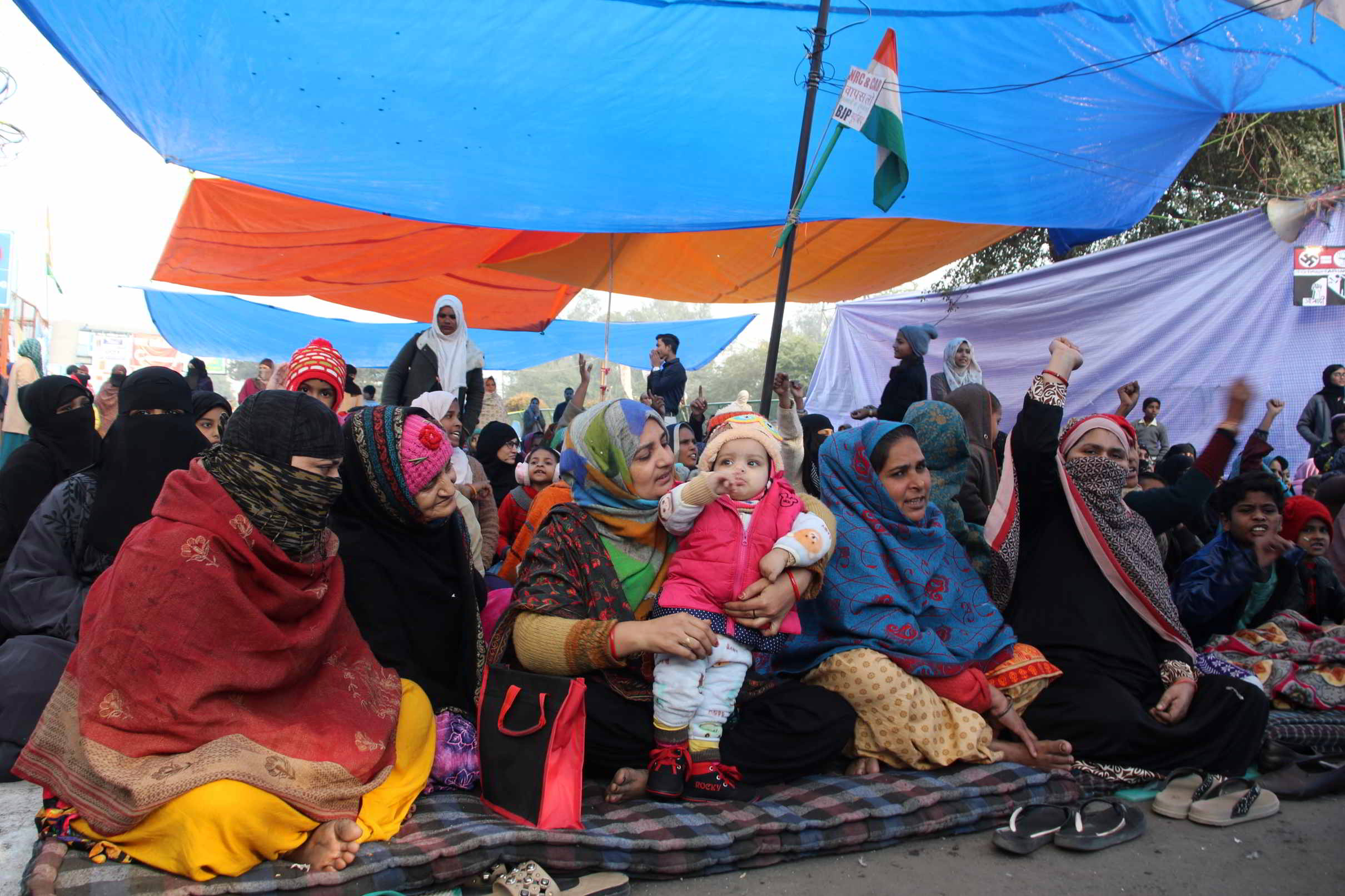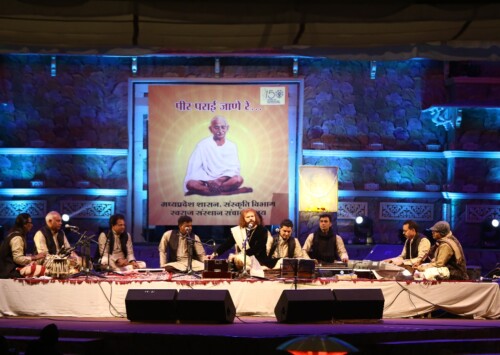Supreme Court ruling upsets Shaheen Bagh protestors

Participants of the Shaheen Bagh protest also say that the Supreme Court’s verdict is solely from the point of view of those who did not want them to protest (MIG Photos/Aman Kanojiya)
“The right to protest cannot be any time and everywhere. There may be some spontaneous protests but in case of prolonged dissent or protest, there cannot be continued occupation of public place affecting rights of others,” a three-judge Bench led by Justice Sanjay Kishan Kaul, Aniruddha Bose and Krishna Murari stuck by its previous ruling that protests were meant to be held in designated places and the police will be within its rights to remove persons holding a protest outside designated places. The review hearing held in the judges’ chambers was published on Saturday, February 13th.
The original judgment of October 7 last year declared the demonstrations and road blockades in the Shaheen Bagh area of the national capital as ‘unacceptable’. The court had mentioned that the protest was inconvenient for commuters & indefinite occupation of public places is not allowed.
Dissatisfaction and a new petition
Soon after that, a petition, filed by protestor Kaniz Fatima and 11 others said the protestors were not even heard by the court. The petitioners asked how the court could restrict expressions of dissent to certain designated areas. They also referred to how the police have in the recent past acted arbitrarily by beating students and protestors.
Curiously, the review bench comprised the same judges who delivered the original judgement. The judges noted that they did not find any error in the earlier order which warranted reconsideration. The top court, which considered the matter in the judges’ chambers also rejected the prayer for an open court hearing in the matter.
“We have considered the earlier judicial pronouncements and recorded our opinion that the constitutional scheme comes with a right to protest and express dissent but with an obligation to have certain duties,” the review order reasoned.
Let down by the court again, say protestors
However, similar to the last year’s October ruling, this one, too, has not been received very well by the protestors.
“Restricting protests to designated areas upset the very concept of dissent and protests. Protests are the only way for citizens in a democracy to show their dissent. Curb on this freedom leaves citizens with no report to voice their concerns, especially for protestors coming from vulnerable sections of the social strata,” says Fatima, a 34-year-old housewife who actively participated in the Shaheen Bagh protests.
Fatima says that the observations made by the court in the judgment clothe the police with an arbitrary discretion to attack any peaceful protestor. “This would lead to a situation wherein the administration would never engage in dialogue with protestors, but instead take action against them, including prosecuting them,” she explains.
Participants of the Shaheen Bagh protest also say that the Supreme Court’s verdict is solely from the point of view of those who did not want them to protest. A Delhi High court lawyer also feels that the apex court has ignored all other parts of the protest and only focussed on the place it was carried out at.
“The court addressed only the issue of the protest venue. They have not considered why the locality was chosen. If they had a little consideration, they would know that not all those who took part in the protest had the capability to walk to a ‘designated place’ every day amid bitter cold weather,” he adds.
The lawyer, who chose to remain anonymous, refers to the thousands of small children, housewives and even old people, whose participation for months, drew international attention to the protest and many called it ‘a unique protest that was never seen before.
‘Against the idea of protest’
Fatima admits it would not have been possible for her to be a part of the historic protest if it were anywhere else. “We are women who have families to look after and children to feed. How does the authority expect us to travel to a designated place and sit there for days? The whole idea of a protest is to grab the attention of the public, the government and the media. If we are not allowed to protest in public places like roads and streets, where else are we expected to sit? If this happens, I am sure that housewives will not be able to become a part of any protest ever,” she adds.
“This is against all oppressed people who try to protest against injustice. Evacuating the place and then saying that we were sitting in the wrong place does not make sense and rather discourages the youngsters who might need to protest for their rights in future,” says Abid Sheikh, a 43-year-old social worker and one of the organisers of the protest.
Whether it is Sheikh, the high court lawyer, housewife Fatima or millions of those on social media who have been criticising the court’s order and calling it ‘outright biased’, say that the court should have taken more time to consider the matter, changed the panel of judges who had judged the matter earlier and empathised with the matter of the protest.
Mohammad Abuzar, a 24-year-old student of Jamia Millia Islamia university in Delhi, had been an active participant of the protest with six of his friends. He also feels that the SC’s ruling is against the idea of protest itself. I understand that the regular commuters might have faced problems but it was for a bigger cause. “The court’s judgement seems biased. It will allow fresh curbs on the right to peaceful protest in India,” he says worryingly.
“One needs to come out on roads and other public places to make sure that they get enough attention; the court assigning a corner in the city to sit and protest goes against the very idea of what a protest is and what it demands,” he adds.
While the participants’ disappointment over the ruling is visible, they also seem equally worried about the possibility of CAA’s implementation in near future, especially, after Home Minister Amit Shah on Thursday, addressing an election rally in West Bengal, said the government would implement the Citizenship Amendment Act once the Covid-19 vaccination programme is completed.
“This is a trick to win state elections by dividing the votes. We have been behind closed doors for an year now. Not only has the government never talked to us but is also acting as if they are unaware of any opposition to their arbitrary decision. Though we have not decided on the step by step course of action after this, we are trying to talk among each other and we will definitely resume our fight, hopefully in a stronger and more enthusiastic way,” says Sheikh.










